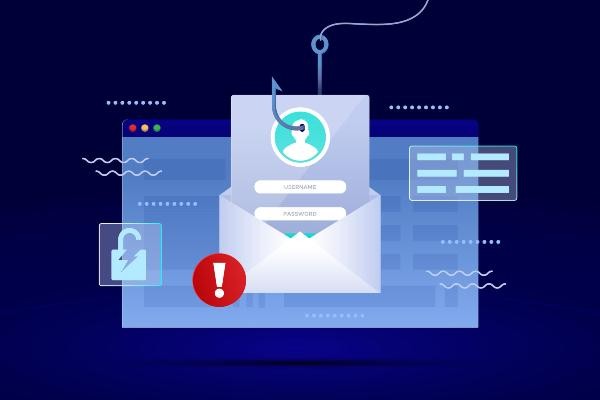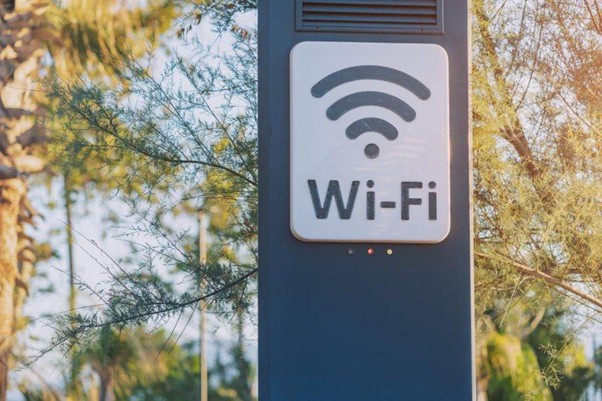Email continues to be an essential tool in our daily lives. It allows us to communicate with friends and family and manage important matters related to work or many other aspects of our lives.
However, it is also one of the main targets of cyberattacks. Therefore, understanding the type of email security we need and applying appropriate measures can protect us from problems such as data theft or unauthorized access to our accounts.
In this article, we share practical tips to improve the security of your email and how to know if an email is secure. We’ll also introduce you to Qondar as a solution that can help you keep your data safe.

8 Ways to Make Your Email Safe
From Enthec, we explain 8 ways to make your email safe
1. Choose strong, unique passwords
A strong password is your first line of defense. Although it may seem an essential tip, many people still use easy-to-guess passwords, such as “123456” or “password”. To create a strong password:
- Use uppercase and lowercase letters, numbers, and symbols.
- Avoid using personal data such as your birth date or pet’s name.
- Make sure it’s at least 12 characters long.
- Consider using a password manager to generate and store passwords securely.
Remember to change your passwords periodically and never reuse the same one on different accounts.
You may be interested in our publication→, How to Manage Passwords and Business Credentials Easily and Securely to Avoid Online Threats.
2. Turn on two-step verification (2FA)
Two-step verification is an email security measure that provides an extra protection layer. This system requires that you insert a temporary code sent to your phone or generated by an application such as Google Authenticator in addition to your password.
This method dramatically reduces the risk of someone accessing your account, even if they manage to get your password Be sure to enable this option on as many accounts as possible, especially those that contain sensitive information.
3. Beware of suspicious emails
Knowing how to identify a secure email is key to avoiding scams such as phishing, a type of attack in which cybercriminals try to trick you into sharing sensitive information.
If you have any questions about an email that seems suspicious, follow these simple steps:
- Check the sender’s address. Attackers often use addresses that mimic well-known companies’ addresses but with slight variations. For example, instead of “support@business.com,” it could be “support@bus1ness.com.”
- Look at the links. Before you click, hover over the link to check where it takes you. If it doesn’t match the official site, be suspicious.
- Look for spelling or grammar errors. Phishing emails often contain errors that are not found in an official message.
- Don’t share sensitive information. No serious entity will email you to ask for your password or banking information.
Don’t respond or click on links if you receive a suspicious email. Instead, contact the sender directly through its official channels.
4. Avoid public Wi-Fi networks to access your email
Connecting to public Wi-Fi networks without security can expose your email to attacks. If you need to use a public connection, consider these options:
- Use a virtual private network (VPN) to encrypt your connection.
- Avoid accessing sensitive information while connected to these networks.
- Turn off the option to automatically connect to Wi-Fi networks.
While convenient, public networks pose a significant risk to your privacy. If you have no alternative, use your mobile data connection to perform essential tasks.

5. Regularly update your devices and apps
Software updates bring new features and fix vulnerabilities that attackers could exploit. Keep up to date:
- The operating system of your computer and phone.
- The email app or client you’re using.
- The browsers you use to access your email.
Also, turn on automatic updates whenever possible to make sure you’re protected from the latest threats
6. Make regular backups
Even if you take every precaution, there is always a risk of your account being hacked. Make regular backups of your important emails so you don’t lose valuable information; you can use cloud services or save files on a secure external device.
Backups can help you recover your information in the event of an attack and are also helpful if you need to access your data offline.
7. Educate your household members about digital security
If you share devices with others, ensure everyone understands the importance of protecting personal information. Talk about the risks associated with opening suspicious emails or using weak passwords. Teaching safe practices to your family members can prevent mistakes that compromise everyone’s safety.
8. Use advanced protection tools
Today, solutions such as Qondar can help you manage your email security more effectively. These tools detect potential threats and monitor whether your information appears in compromised databases. In this way, in real-time, you can detect threats such as compromised passwords for your professional or personal email and the breach that has caused the leak so that you can act before cybercriminals use them.
Qondar: Advanced protection for your emails and personal data
Qondar is a cyber surveillance solution designed for individual users who want to keep their information safe. As a Continuous Threat Exposure Management (CTEM) tool, Qondar allows you to:
- Detect potential vulnerabilities before attackers exploit them.
- Receive alerts on potential security compromises in real-time.
- Monitor the presence of your data in suspicious sources or underground networks.
With Qondar, you can have peace of mind knowing that your email and personal information are protected from digital threats.
Protecting your email security isn’t complicated, but it requires consistency and the right tools. From choosing strong passwords to identifying suspicious emails, every step you take shields your privacy.
If you’re looking for a complete solution to protect your personal information, Qondar is the ideal tool.
Don’t leave your security to chance: start managing your threat exposure with Qondar and always keep your data safe.



